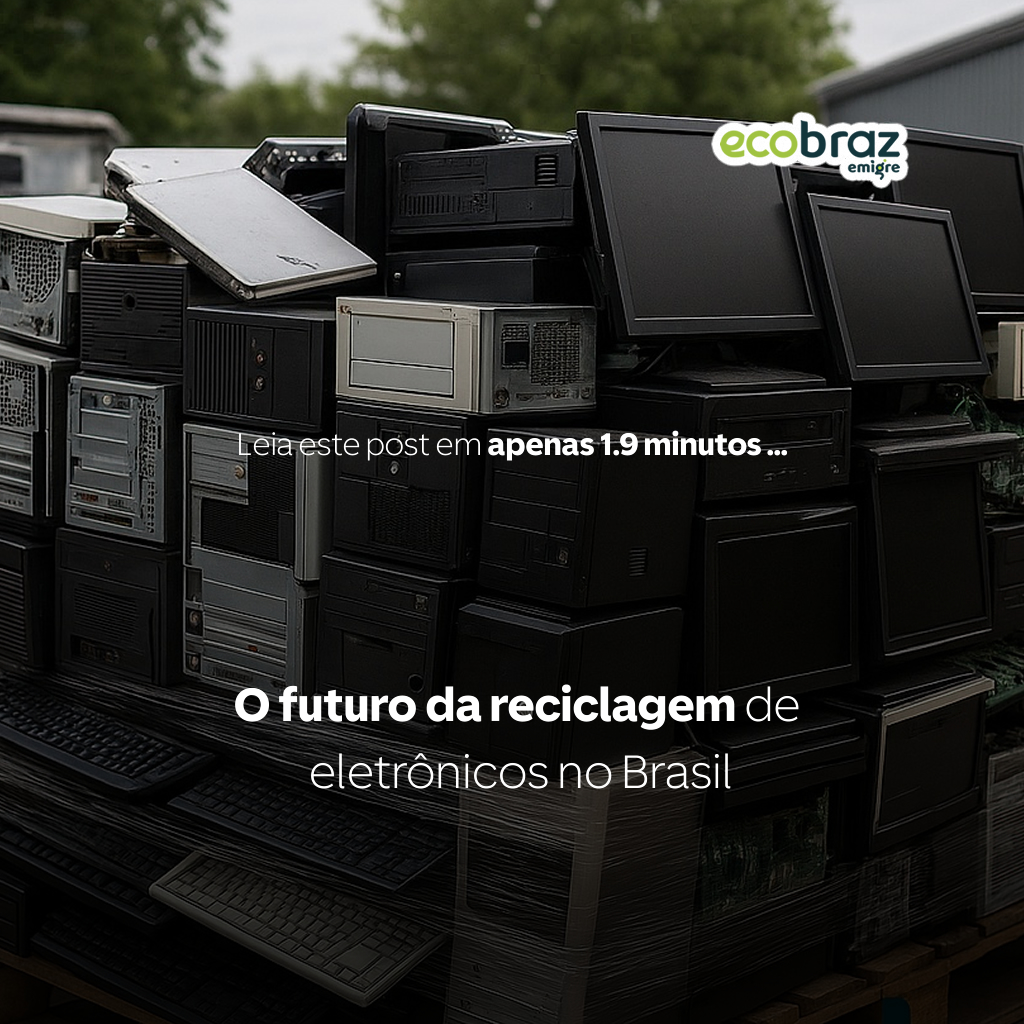Blog Ecobraz Eigre

The Future of Electronics Recycling in Brazil
Introduction: A growing challenge
According to the UN, Brazil generates more than 2 million tons of electronic waste per year but recycles less than 3% of it. With the constant increase in technology consumption, this volume is expected to grow significantly in the coming years.
In this scenario, electronics recycling is no longer an option but a strategic necessity for sustainability and public health.
The role of legislation and public policies
The future of electronics recycling in Brazil is directly linked to the advancement of public policies:
-
PNRS (National Solid Waste Policy): establishes shared responsibility for the product life cycle.
-
Reverse logistics targets: increasingly stricter requirements for manufacturers and importers.
-
Environmental oversight: growing pressure on companies failing to comply with the law.
Opportunities for companies
Companies that invest in electronics recycling gain direct benefits:
-
Regulatory compliance → avoiding fines and sanctions.
-
Brand reputation → alignment with ESG principles.
-
Access to sustainable investments → international funds prioritize environmental practices.
-
Innovation and circular economy → recovery of valuable raw materials such as copper, gold, and aluminum.
Social and environmental impact
Electronics recycling is not only an environmental issue but also a social one:
-
Reduction of toxic impacts from heavy metals in soil and water.
-
Job creation across the reverse logistics chain.
-
Digital inclusion → reused equipment benefits underserved communities.
-
Raising public awareness on responsible disposal.
The future with Ecobraz Emigre
Ecobraz Emigre is at the forefront of the future of electronics recycling in Brazil:
-
World’s largest NGO in electronics recycling.
-
Nationwide operations with collection services across the country.
-
Modern infrastructure for dismantling and recycling.
-
Comprehensive documentation and traceability for companies.
-
Integration with social projects such as Reciclando, which promotes digital inclusion in vulnerable communities.
Trends for the coming years
-
Expansion of reverse logistics → growing requirement from large companies.
-
New recycling technologies → more efficient processes for separation and reuse.
-
Increased role of NGOs → supporting public policies and implementing projects.
-
Large-scale environmental education → awareness as the key to increasing recycling rates.
Conclusion: Brazil as a global reference
Despite its challenges, Brazil has the potential to become a global reference in electronics recycling. With stronger public policies, corporate engagement, and support from NGOs such as Ecobraz Emigre, the country can turn a growing problem into a major opportunity for sustainable development.

Deixe um comentário
O seu endereço de e-mail não será publicado. Campos obrigatórios são marcados com *